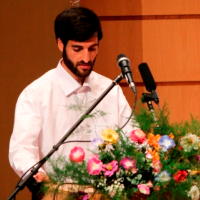Change of Divine Creation: Meaning and Criterion (According to the Verse “Changing Creation”)
According to the verse 119 of Surah Al-Nisā’, one of the Satan’s tricks is to emphasize “the change of divine creation”. Islamic scholars have different views regarding the contents of this verse, the meaning of changing creation, and its criterion. They have mainly interpreted changing the divine creation into religion, nature, the imperfection of the physical creation of man and animal, tattooing, resemblance to the attributes of the opposite sex, etc. In addition, they have explained and described criteria for distinguishing between the positive and negative change of creation. The author considers the existing views in this field and explains the criteria for changing the divine creation, using a series of general statements. Accordingly, the change in divine creation has two instances of legislation and genesis. The general rules of genetic and legislative creation are stated in order to ensure the change from “madhmūm” (negative) to “mamdūh” (positive). Some of the general rules of genetic creation are as follow: the purposefulness of objects, the perfection of creation, the best creation, and genetic guidance. Also, some general rules of legislative creation are as follow: commitment to divine limits, organic attitude towards worldly affairs, non-extravagance of using objects and non-corruption of using objects. Accordingly, a change incompatible with the genetic and legislative principles of creation is a Satanic and hence negative change, while the changes based on the mentioned principles are praiseworthy and desirable. On this basis, the challenge of “the quality of the application of the people to religion” existing against some views, would be eliminated as well.
-
The role of the body in the formation of action (with emphasis on Mulla Sadra's view)
*
Journal of Sadra's wisdom, -
The Possibility of Extracting Multiple Concepts from the Dignity of a single Entity and its Philosophical Results (with Emphasis on Mulla Sadra's Point of View)
Leila Nikooienejad *,
Journal of Sadra's wisdom,


